Below are examples of women who were trained as microfranchisees to sell solar powered products in the TecAp microfranchise.
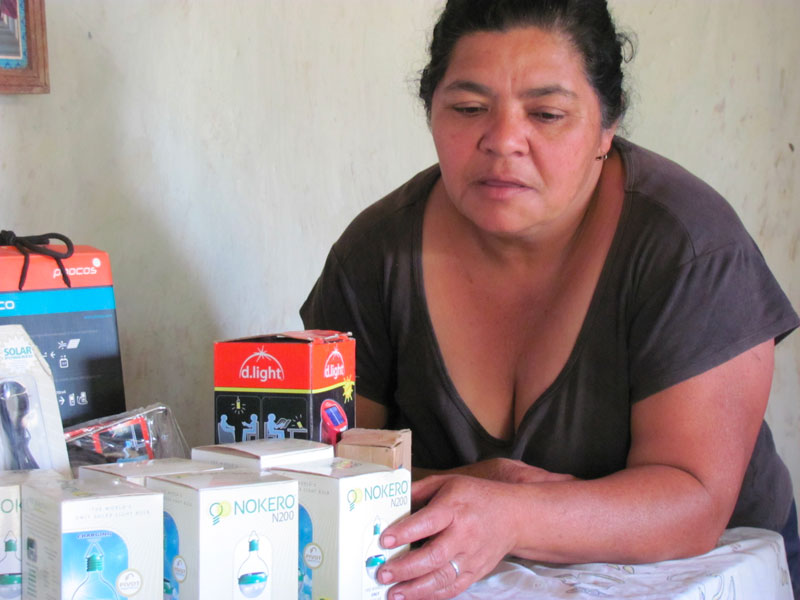
Neomi Barahona, selling her solar powered products in her rural community, where she also farms and is a community leader.
Naomi Barahona, 49, is one of the first microfranchisees to sell solar powered products in the rural areas of Murra, bordering Honduras. She sells lanterns, cell phone chargers & lamps.
Her community was once the scene of fierce fighting by the Contras, the rebel group in the 1980s that fought the Nicaraguan government.
Murra is relatively peaceful today, and its inhabitants make their living primarily from farming corn, beans and growing coffee.
Barahona grows beans and coffee and also raises farm animals. She is a strong voice and advocate for her community.
Barahona is an activist and one of the first to raise her voice in defense of the rights of women and girls. She helps and mentors women who acquire and raise farm animals through a government support program. She volunteers with the Ministry of Health and also oversees a community pharmacy supplying veterinary medicines.
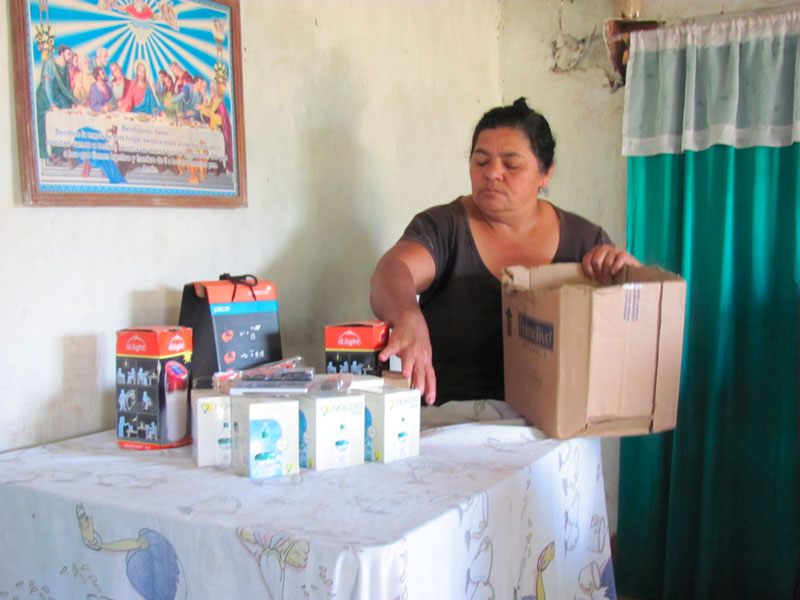
With so many community connections, Barahona has a wide audience as she sells the new solar powered products. She is committed to sharing the benefits of solar energy with as many people as possible in the surrounding communities. As a single mother, the income from selling the products is also very important to her family.
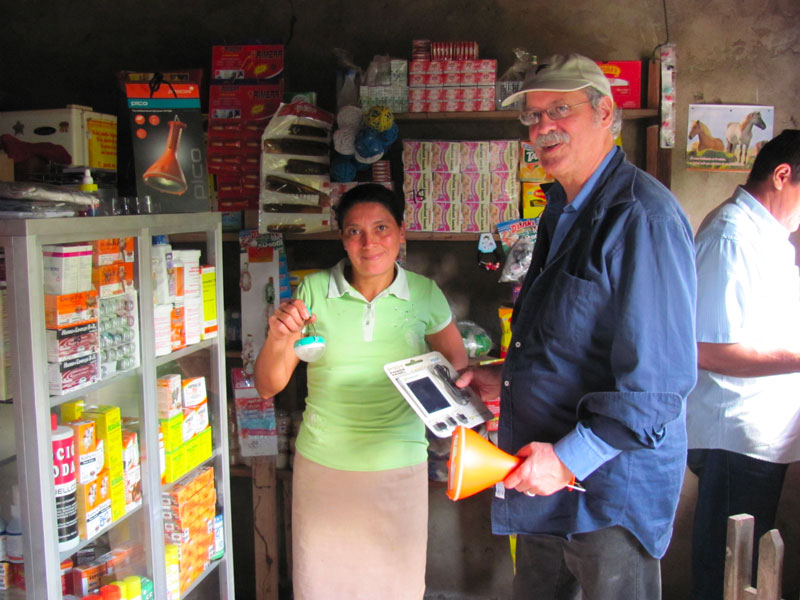
Herlinda Armis sells solar items and veterinary medicine. Carter Garber, the Executive Director of IDEAS, examines her merchandise.
Herlinda Armas lives in the town of El Rosario. El Rosario is 20 miles from the very small city of Murra, a 2 hour drive during the dry season. But during the rainy season, it can take longer than 5 hours to reach her community, with deep rutted roads and mud.
Armas runs a store from her house and lives on the main road where a river crosses the street. Travelers have to slow down to cross, notice her store and often come in and shop. People also come down from the mountains, where there is no light, to buy solar powered products from her.
On recommendation from her community, IDEAS approached Armas and trained her in 2012 to become a microfranchisee. She is growing her small store adding new products. Now she sells solar powered items alongside veterinary medicine, food and other items in her store. This has helped bring in the extra income to feed her children and do a lot more for her community.
Armas is a single mom working hard to create a better future for her children. Even though she hasn’t completed her primary education and writes with many misspellings, she studiously works on educating on the use and application of the veterinary products she sells. Her community selected her to further train in basic veterinary medicine and application.
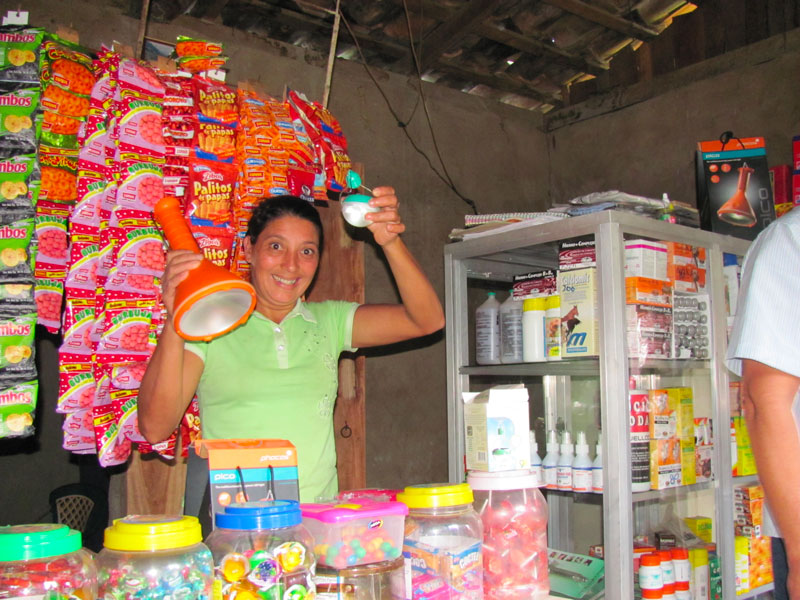
Today many come for advice on dosage and to buy her products. She had nothing when she started out. But because of her determination and effort her businesses is now worth $3000. Armas is an excellent stewardess of her money and has increased her supplies 7 times from when she started 3 years ago.
Small diversified stores like that of Herlinda are invaluable to the people in her community who have to commute to Murra for supplies.
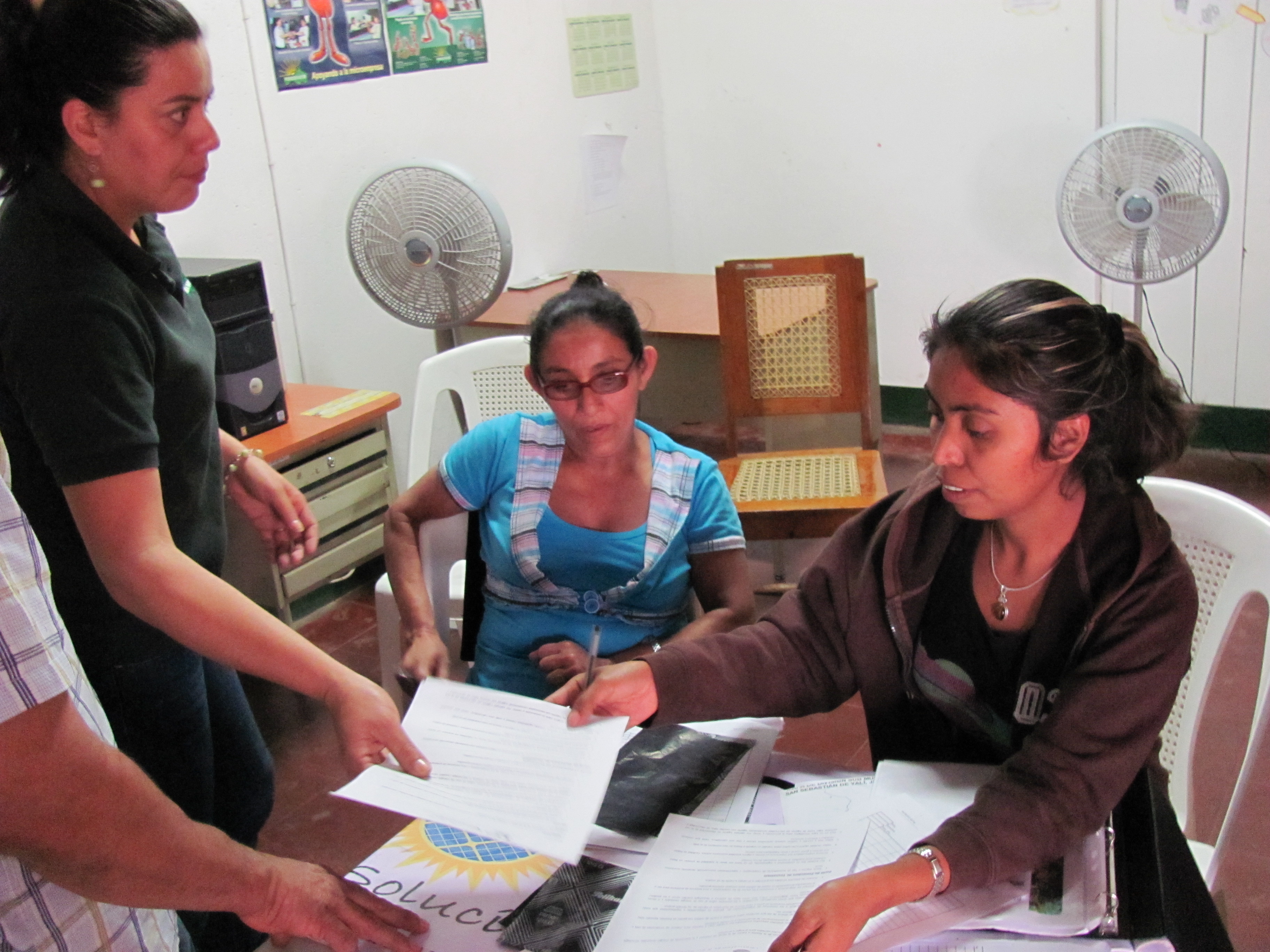
Maria Elizabeth Rivera Blandon fills out papers with the help of staff from IDEAS and a microfinance institution to acquire a loan. Maria is a new microfranchisee who is ready to start earning money as soon as she walks out the door.
IDEAS partners with a microfinance institution called FUNDENUSE that provides loans for women. Together we have designed a program for women to take loans to buy solar powered products to sell. We also provide loans to those wanting to buy a rooftop system without which it would have been impossible to acquire.
Maria Elizabeth Rivera Blandon, 46 years old Blandon is a grandmother who sews and sells clothes. In 2013, she took out 5 loans to buy and sell solar powered items. She succeeded with her first loan and came back to borrow more.
TecAp helped her learn her new solar business while she was developing a credit record for the first time. “I started out with real fear because I wasn’t sure about the new technology or whether people would want it,” said Blandon.
She started with $147 worth of products and quickly sold them and paid off her loan. In her first two months she sold 8 lamps.
Now she finds people come to her home when they see what others have bought from her and want to buy for themselves. “Now it practically sells itself,” she said.
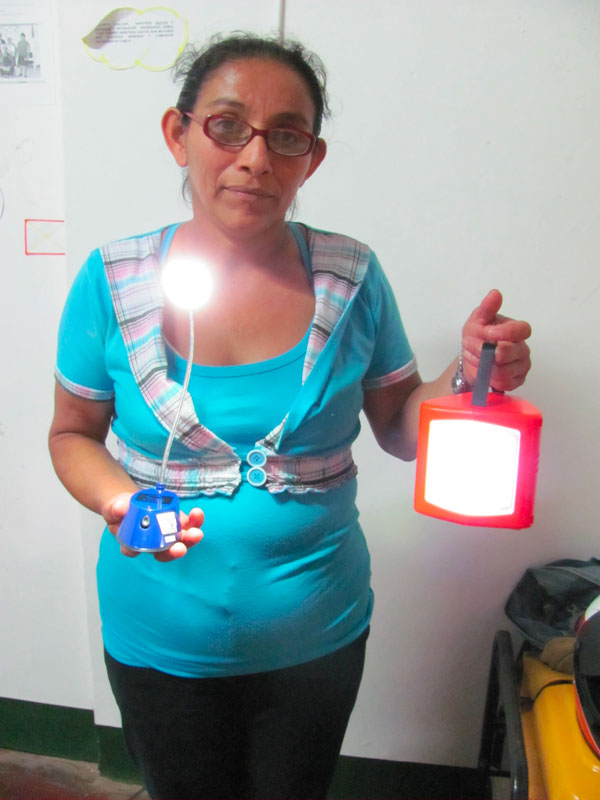
TecAp has assisted 13 other women like Blandon become microfranchisees selling solar powered products in Yali. TecAp makes sure that Blandon has quality items at good prices so that customers come back to buy more. The convenience of being able to buy technology they have never seen right at their door is a new phenomenon for many rural communities in Nicaragua. Our women microfranchisees are also able to take home much needed income to their poor families.

 Español
Español